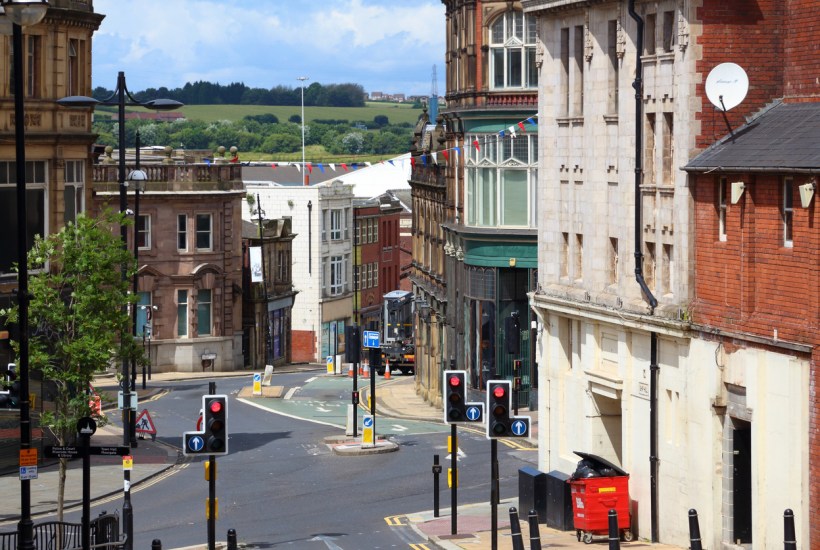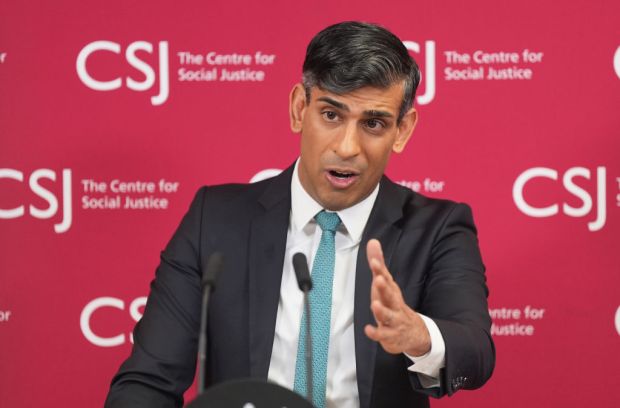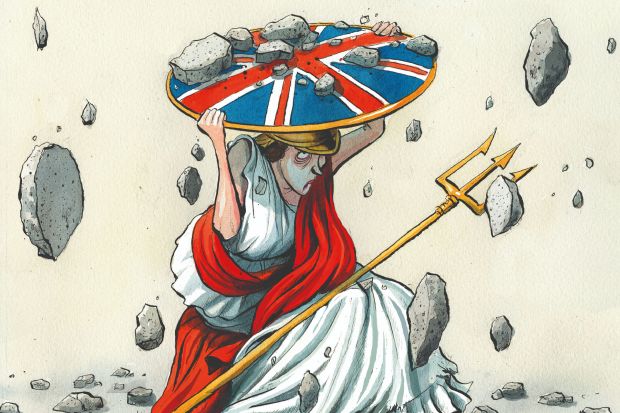Tabloid journalism begins with W.T. Stead, who as editor of the Pall Mall Gazette in the 1880s brought news and scandal to the newly literate masses, transforming public culture and politics with it.
The son of a Congregationalist preacher, Stead grew up in a strict religious household in Northumberland, in a home where theatre was ‘the Devil’s chapel’ and novels ‘the Devil’s Bible’. Taught to read by his father, the newsman’s nonconformism would inform his campaigns after he moved from the Northern Echo to the Gazette in London.
The case of Rotherham remains the most shocking, not just for the scale of the abuse but the institutional response
Stead was most of all famous for the first great newspaper investigation, in 1885, ‘The Maiden Tribute of Modern Babylon’, on the scandal of child prostitution. Stead had bought a girl called Eliza for £5, on the premise that she was to be taken to a brothel on the continent, using quite dubious methods that got him sent to jail for three months.
Despite this, the story succeeded – a national scandal which led to a change in the law, the age of consent raised from 13 to 16. The idea of English girls being trafficked into sex outraged and horrified the public, Stead’s story imprinted itself deeply into the public psyche, to the extent of influencing George Bernard Shaw’s Pygmalion — thus, Eliza Doolittle.
On the continent it helped to inspire a genre of vaguely pornographic literature about the sexual perversion rife in England, a fantasy that belied the fact that late Victorian London was not a nest of vice, relatively speaking. Most measure of squalor and child abuse had declined in the 19th century and a teenage girl by the end of the century was relatively safe, compared to a predecessor in almost any era; public moral outrage offered protection, even if it could be unforgiving for those same girls who transgressed.
Stead would become the most famous journalist of the era, so renowned that in 1912 he was invited to New York by the US President to attend a conference — and so booked a ticket on a famously unsinkable new liner. He was last seen helping women and children trying to get on to lifeboats, and, true to the chapel ethos of his parents, gave away his lifejacket. He was among the 1,500 who lost their lives on the Titanic.
A century or so later, in 2003, a journalist for the Times called Andrew Norfolk became aware of strange and disturbing rumours from Yorkshire. Originally reported by Labour MP Anne Cryer, they involved groups of mostly Pakistani men loitering around schools in Rotherham and sexually abusing girls, some as young as 13. There were supposedly whole gangs of men involved and the number of victims stood in the hundreds. Norfolk found it implausible; it sounded like a far-Right conspiracy.
Yet, as the Times journalist soon began to realise, this story was true. In fact, it was much bigger than anyone could really conceive, and it wasn’t just Rotherham, either; similar things were happening across the north of England and beyond. There were thousands of girls involved.
This was far more horrifying than the scandal Stead uncovered, yet no Parliamentary law resulted from the revelation. The story was extensively covered by Norfolk, and it inspired a drama and a couple of books by those involved. Yet no great national soul searching had followed — and that is why it is most likely still going on.
All of which makes tonight’s long-awaited GB News documentary Grooming Gangs: Britain’s Shame, so necessary. Presented by journalist Charlie Peters, who travelled across the country speaking to victims, whistle-blowers and campaigners in Rotherham, Rochdale and Telford (where I met him last October), the documentary is both harrowing and frustrating in the sheer sense of powerlessness it projects. Repeatedly the authorities knew what was happening, were passed the details of the abusers and evidence, gave reassurances that something would be done and then… nothing.
Although grooming gangs have been uncovered in multiple towns and cities, the case of Rotherham remains the most shocking, not just for the scale of the abuse but the institutional response.
Here Norfolk was able to access a number of reports on the council’s handling of abuse, one written by solicitor Adele Weir. Sent by the Home Office to study child prostitution, Weir found an abuse ring centred around a man called Arshid Hussain, discovering 270 victims with no fewer than 18 naming Arshid as their supposed ‘boyfriend’.
The police failed to act — even though the rapists involved were also dealing drugs.
In 2001 Weir took a young girl who’d been raped to report the crime to the police. While in the police station her abuser contacted her to say he had her younger sister. The gang had already broken her brother’s legs and so the terrified girl dropped the complaint. ‘You can’t protect me,’ she said. How the abuser found out she was in the police station has never been explained. When Weir complained to the police, she was told to never do it again, she and a colleague told off ‘like naughty schoolgirls’.
During her time Weir worked in the offices of a charity called Risky Business, which helped victims of sexual abuse. Now strange things happened at the office: a computer was interfered with, the minutes of a meeting changed; files and paperwork went missing after a break-in. The intruder, Peters suspects, could have been someone working for Rotherham council.
Jayne Senior, who ran Risky Business, is among those who features in the documentary and it’s hard not to feel that one might go insane in her position, or at least develop a soul-crushing cynicism about how things worked.
Senior was heavily involved in trying to do something about the Rotherham scandal; in fact it was she who had helped Norfolk get a Serious Case Review for the murder of a girl called Laura Wilson. Wilson, aged 17, had been stabbed 40 times by her ex-boyfriend after telling his family about their relationship. But the review found that she’d been groomed by a group of men from an early age, and with an IQ of 58 was completely helpless to defend herself; and 15 different agencies were found to have failed.
Rotherham Council wished to present this as a simple ‘honour killing’. The council also censored the report, then threatened to use a High Court Injunction to stop the publication of uncensored extracts.
Senior heard of a young girl who had been abused, and tried to alert the authorities. ‘I had a database where we had intelligence that we were putting there on a daily basis,’ she tells Peter. ‘And I’d get lots of things that were said to me in meetings, such as “these children were consenting”, “they were making informed choices”, “they were returning to their abusers”, “they wouldn’t make a good witness if it went to court”, and also we were breaching their human rights; but it was never the human rights of the children, it was the human rights of the perpetrators.’
In many cases the authorities were enabling these ‘relationships’; exactly a century after Stead’s great campaign the Lords had ruled that children under 16 could be given contraception without their parents’ consent; relationships between grown men and girls under 16 were treated as ‘boyfriend and girlfriend’. One 12-year-old victim was even offered Punjabi and Urdu lessons, the language of her abusers!
Senior’s campaign was relentless but seemingly futile. Repeatedly she would give the authorities details: ‘car registration numbers, names, nicknames, addresses, properties of concern…. we kind of collated a raft of that information that we kept, and we kept it in a database…. And people still say to me today, “why did they actually do nothing”. And I can’t give you the absolute answer to that, all I can tell you is what they said at the time: “the children were consenting”, “the children wouldn’t make good witnesses if they went to court”.’
In Rochdale, under the control of the Greater Manchester police, one policeman — the only whistle blower to resign over what was going on, reflected: ‘I couldn’t get any answers. All I was told was that there was insufficient evidence to prosecute.’
It gets more and more bleak. A girl in Telford tells how she was raped a thousand times. In this Midlands new town built in the optimistic post-war era, children were sold for sex in a house, where local men would visit and note their names on a piece of paper; what the documentary makers describe as a ‘paedophile honesty box’. The girls were frightened because of what happened to Lucy Lowe, a 15-year-old girl who had been burned to death with her mother, sister, and unborn child — murdered by an abuser.
In Telford a group of teachers complained that ‘there was a problem in this authority with Pakistani youths’ abusing girls; a council worker accused them of being racist. One council worker failed to share reports because it was fearful it would ‘start a race riot’.
Watching this, the inability of people to weigh up the seriousness of different social evils, I wonder to what extent this scandal was made worse by the Macpherson Report of 1999, and the terror public servants had of being accused of racism, or their department being accused of ‘institutional racism’. That is a career ending allegation in Britain, while in contrast allowing your town to become the scene of the worst mass rape in British history seems to make little dent.
The bitter aftertaste to this story comes from the fact that, after lengthy reports criticising councils and police forces, very few people have been disciplined; a handful of police were told off, but most of the people involved in the councils have happily progressed in their careers — including one who, incredibly, now thrives in the equality and diversity industry. The Labour party, the soul of which feels tarnished by the terrible moral compromises it has made with multiculturalism, even tried to make one of the Rotherham councillors an MP until GB News forced him to stand down. Fresh revelations about the council have emerged just in the past few days.
The running theme of this story is that institutions — whether the Labour party, social services, local authorities or police — repeatedly reward those responsible, until they feel the pressure of the media and of public outrage. And, apart from Norfolk’s investigation, this has been quite muted; even the Tory party has been reluctant to make capital over this scandal.
It’s a taboo issue, for obvious reasons, but that is why it is almost certainly still going on; because, as Peters says, political correctness is not just about being nice, it has serious, often horrific consequences.
At the end of the documentary he calls on the National Crime Agency to launch investigations into towns where allegations of grooming gangs have been made. He calls for police to be held to account, ‘whether it’s for failing to collect data on ethnicity or for not prosecuting criminals’. And he calls for stronger sentences for the rapists, for ‘No victim should see their abuser walk out of prison after only a few years.’
But we also need to ask about the role of the media, and the arts world, and the cultural powers who decide whether something is worth caring about. It’s significant that this has been left to GB News, a small and still fringe television channel, to tell the story. It should be on BBC1; this should be regularly discussed on the Today programme. My local arts cinema should be telling me about a new film portraying the scandal.
There should be a national conversation about it in the way there was after the Lawrence inquiry. Our Modern Babylon needs to attract the same moral outrage as it did with our Victorian forebears, because public outrage is a safety mechanism that ensures public servants do their jobs — and bad guys aren’t allowed to get away with it.
This article first appeared in Ed West’s Wrong Side of History Substack.
Got something to add? Join the discussion and comment below.
Get 10 issues for just $10
Subscribe to The Spectator Australia today for the next 10 magazine issues, plus full online access, for just $10.



















Comments
Don't miss out
Join the conversation with other Spectator Australia readers. Subscribe to leave a comment.
SUBSCRIBEAlready a subscriber? Log in